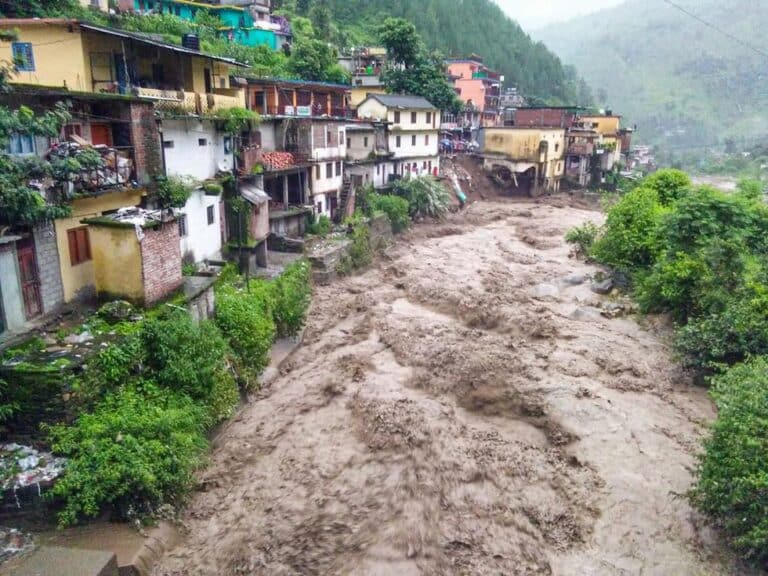About CSIR-NGRI’s Early Warning System:
- The scientists in the institute have identified a few locations in the higher reaches of Uttarakhand for “densification” of seismometers and river gauges to take the total number to 100 from 60.
- The objective is to closely monitor the river flows in specific areas along the catchment to detect any sudden rise in water levels or flooding threshold that can lead to a hazard.
- Scientists have decided to take cognisance of the vibrations or “noise” recorded by the seismometers, which need not be due to earthquakes but can also be because of vehicular traffic, animal movement, rain, river flows and so on.
- These instruments are crucial for the safety of large infrastructure projects and hydroelectric power plants in this region.
- Currently, scientists are able to detect and assess a sudden flow 30-40 km away since the seismic wave is faster than the flow, and hence, the advance warning comes at least half an hour before.
- The NGRI has started utilising Machine Learning to detect these observations faster than the normal approach.
Initiative by Geological Survey of India (GSI):
- Scientists at the Geological Survey of India (GSI), a scientific agency established under the Ministry of Mines to conduct geological surveys and studies of India, in collaboration with the British Geological Survey, have been evaluating a prototype to predict landslides in the Darjeeling district of West Bengal and the Nilgiris in Tamil Nadu.
- If the model proves successful, it is likely to be deployed in some parts of India as early as 2025.
Early warning systems:
- Early warning systems have been recognized as an effective tool to reduce vulnerabilities and improve preparedness and response to hazards, according to the United Nations Development Programme.
- The Sendai Framework for Disaster Risk Reduction (2015–2030), an international document adopted by United Nations (UN) member states in 2015, requires countries to set out an early warning system with a multi-hazard approach by 2030.
Source : The Hindu
Last updated on February, 2026
→ UPSC Notification 2026 is now out on the official website at upsconline.nic.in.
→ UPSC IFoS Notification 2026 is now out on the official website at upsconline.nic.in.
→ UPSC Calendar 2026 has been released.
→ UPSC Final Result 2025 is expected to be released in the first week of March 2026.
→ Check out the latest UPSC Syllabus 2026 here.
→ Join Vajiram & Ravi’s Interview Guidance Programme for expert help to crack your final UPSC stage.
→ UPSC Mains Result 2025 is now out.
→ UPSC Prelims 2026 will be conducted on 24th May, 2026 & UPSC Mains 2026 will be conducted on 21st August 2026.
→ The UPSC Selection Process is of 3 stages-Prelims, Mains and Interview.
→ Prepare effectively with Vajiram & Ravi’s UPSC Prelims Test Series 2026 featuring full-length mock tests, detailed solutions, and performance analysis.
→ Enroll in Vajiram & Ravi’s UPSC Mains Test Series 2026 for structured answer writing practice, expert evaluation, and exam-oriented feedback.
→ Join Vajiram & Ravi’s Best UPSC Mentorship Program for personalized guidance, strategy planning, and one-to-one support from experienced mentors.
→ Check UPSC Marksheet 2024 Here.
→ UPSC Toppers List 2024 is released now. Shakti Dubey is UPSC AIR 1 2024 Topper.
→ Also check Best UPSC Coaching in India


















